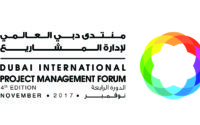Pirelli Supplier Award 2018: Suppliers Awarded For Innovation, Quality Of Service And Sustainability
Sustainability, innovation and quality of service are the key elements which Pirelli maintained as essential for the Supplier Award 2018, the annual occasion when the Company awards 9 suppliers chosen from over 10,000 belonging to it global supply chain. The Supplier Awards reward those suppliers who shine for their ability to make the Pirelli supply chain even more sustainable and enhance qualitative excellence, making Pirelli’s products always more High Value, in line with the Group’s strategy.
The awards for the suppliers who distinguished themselves over the last year were presented by the Chief Purchasing Officer, Matteo Battaini and the Chief Sustainability and Risk Governance Officer, Filippo Bettini, at a ceremony at Pirelli’s headquarters in Milan. The awards were given to nine suppliers in the areas of raw materials, services and machinery.
In the 2018 edition, the most frequently seen factors include innovation, quality of service and sustainability, which had its own specific award. Pirelli’s supply chain has been constructed to guarantee product innovation, process digitalization and long-term competitiveness, where respect for the environment and attention to the value of people are considered primary levers of growth.
Pirelli’s efforts towards a sustainable purchasing strategy were recognized by the confirmation that Pirelli’s supply system was in compliance with the UNI ISO 20400 rule, conferred in February 2018 by SGS Italia S.p.A. – among the leading companies at the world level for inspection, verification, analysis and certification services. Pirelli is thus the first company in the automotive world to have received this confirmation of compliance. The ISO 20400 constitutes the most important international guideline in the matter of supply chain sustainable governance, where the economic, social and environmental responsibility are integrated into the Company’s strategies, organization and purchasing processes.
The following are the suppliers that won awards at the 2018 edition of the Pirelli Supplier Award:
Glanzstoff Sicrem Spa (Italy), suppliers of textile reinforcements – awarded for criteria of “Quality” and “Speed” which was also received the prestigious Sustainability prize, which the company deserved because it produces rayon using only cellulose from plantations certified for sustainable agro-forestry management.
JSR Corporation (Japan), supplier of synthetic rubber awarded for criteria of “Innovation” and “Service Level”,
Thai Eastern Innovation Co., Ltd (Thailandia), PT. Kirana Megatara Tbk (Indonesia) e PT. Prasidha Aneka Niaga Tbk (Indonesia), suppliers of natural rubber awarded for “Quality” and “Service Level”,
VMI Holland (Holland), supplier of tyre assemblers and machines for semi-processed components for the criteria of “Quality” and “Global Presence”,
MDM (Italy), an integrated marketing and communication agency awarded for the criteria of “Innovation” and “Speed”,
APPIAN (USA), supplier of the Business Process Management platform and related consultancy services awarded for the criteria of “Innovation” and “Speed”,
Warehouse Service, Inc. (USA), supplier of logistics services awarded for the criteria of “Speed” and “Innovation”.
Matteo Battaini, Chief Purchasing Officer, commented: “Pirelli has built its business model, focused on High Value, on product innovation and process digitalization. To pursue this strategy, it is not only necessary to choose as suppliers leader companies, but also to build with each of them a partner relationship. It is essential that they share values such as innovation, quality, customer care, product and process sustainability and attention to brand value. And, in an ever more dynamic market context, goals must also be shared, such as cost rationalization, speed of adapting to new technology and implementation of best practices in sustainable management. Today Pirelli’s procurement involves the management of around 10,000 suppliers for a total expenditure of 3.2 billion euro in 2017, mainly on raw materials (46%), services (36%), machinery (13%) and consumption materials (3%).”








